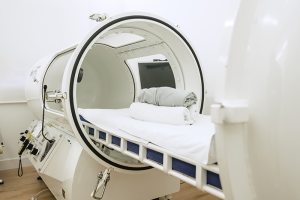ASHE urges CDC to avoid additional health care requirements on Legionella
ASHE urges CDC to avoid additional health care requirements on Legionella
The American Society for Healthcare Engineering (ASHE) submitted comments to the Centers for Disease Control and Prevention (CDC) stating that additional regulatory requirements to prevent Legionella are not needed for health care facilities.
Jonathan Flannery, MHSA, CHFM, FASHE, FACHE, senior associate director of advocacy at ASHE, wrote on behalf of the organization in response to the CDC’s request for information on developing effective water-management programs to reduce Legionella. Flannery wrote that health care facilities already address the issue through existing federal regulations.
ASHE’s full public comments are available for download from the Federal Register.
Senate passes disaster relief bill for victims of hurricanes and wildfires
The Senate on Tuesday voted 82-17 to approve a second emergency funding measure to support recovery from the nation’s recent hurricanes and wildfires.
The $36.5 billion emergency supplemental contains $18.7 billion for the Federal Emergency Management Agency's Disaster Relief Fund, $16 billion for National Flood Insurance Program debt forgiveness, $1.27 billion for nutrition assistance for Puerto Rico and $576.5 million to help with recovery efforts from wildfires in some Western states.
CDC issues key health messages for workers responding to hurricane relief
The Centers for Disease Control and Prevention (CDC) and the Agency for Toxic Substances and Disease Registry are working with federal, state and local agencies as well as global health partners in response to the devastation caused by hurricanes Harvey, Irma and Maria.
In a recently published document, the organizations lay out key health messages to help protect employers, workers and volunteers from disease, injuries and fatalities during hurricane-recovery efforts. It touches on issues such as mold cleanup, carbon monoxide poisoning and personal protective equipment.
Study: Cloth skullcaps prevent airborne contamination better than disposable caps
A study to test the effectiveness of different operating room (OR) head coverings in preventing airborne contamination has found that surgeon’s caps that expose small amounts of the ears and hair outperform bouffant-style, disposable scrub hats that cover those features.
Results of the study were presented during a Scientific Forum program at the American College of Surgeons Clinical Congress 2017, and will be published online and in print by the Journal of the American College of Surgeons.
During the mock operations, the bouffant hats and the disposable surgical skullcaps had similar airborne particle counts, the study investigators reported. However, cloth skullcaps, which do not have a porous crown like their disposable counterparts, reportedly outperformed bouffant hats, showing lower particle counts and significantly lower microbial shedding at the sterile field compared with bouffant hats.
FDA works to combat medical device shortages in Puerto Rico
The Food and Drug Administration (FDA) continues to work with medical device manufacturers in Puerto Rico to prevent product shortages following Hurricane Maria, FDA Commissioner Scott Gottlieb, M.D., said. More than 50 facilities on the island manufacture medical devices.
“Most, if not all, of these device manufacturers continue to run on generator power and, as a result, have been unable to return to pre-hurricane production levels,” Gottlieb said. The agency is working to help the facilities “secure fuel and logistical support to move critical products onto and off the island,” and is considering importing devices from other countries, when necessary, or allowing manufacturers to shift production to alternative sites, he said.




